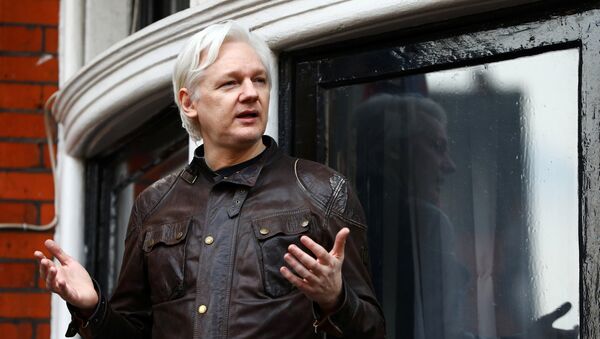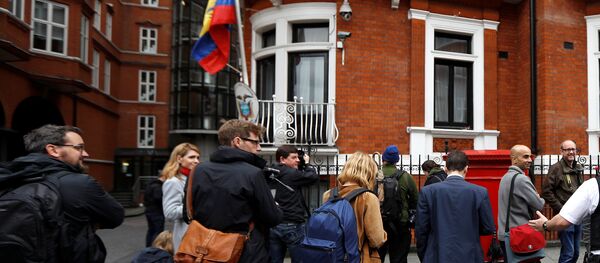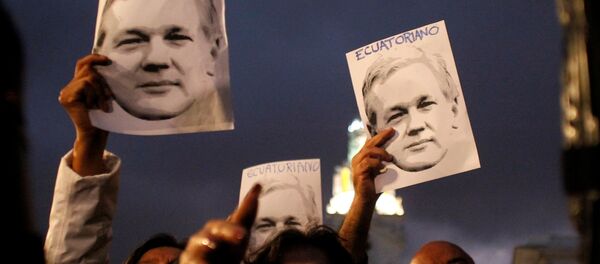On Wednesday, Assange took part in an Ecuadorian court hearing into the appeal, lodged by his defence team, against the demand of the authorities of the South American country that Assange should comply with the home rules set by them while he is living inside the embassy. Assange participated in the hearing via video link-up from London.
During the hearing, Assange suggested there were facts of espionage inside the diplomatic mission’s premises. According to the whistleblower, the gathered intelligence data might have been shared with the US Federal Bureau of Investigation (FBI).
The whistleblower also noted that he had received comments of threatening nature from the Ecuadorian authorities due to his journalistic work. Assange argued that the living conditions in the Ecuadorian embassy threatened his health and might result in his hospitalization, which, in its turn, might represent an opportunity for the Quito to hand him over to London or Washington.
Assange also compared himself to Saudi journalist Jamal Khashoggi, who was killed inside the Saudi embassy in Turkey in October, which provoked harsh criticism of Ecuadorian Prosecutor General Inigo Salvador.
Assange has received an asylum in the Ecuadorian embassy. Over the past months, the Ecuadorian authorities have been putting various restrictions on the conditions of Assange’s stay in the embassy, which the whistleblower’s defence called the violation of human rights.
However, Assange has denied leaving the embassy premises, saying that he might be seized outside and extradited to the United States.
In November, WikiLeaks suggested that the US authorities might have brought sealed charges against Assange, citing a filing in an unrelated case that used Assange's name in an "apparent cut-and-paste error."




